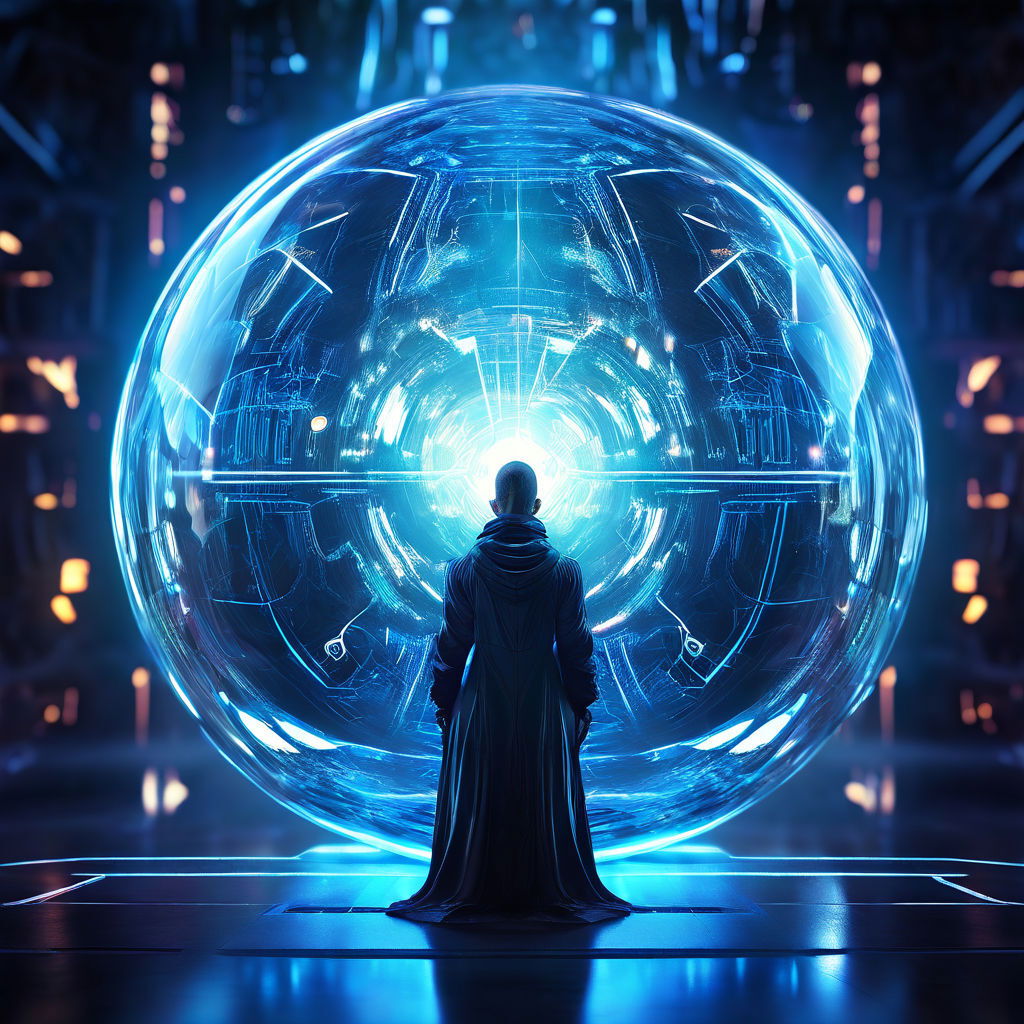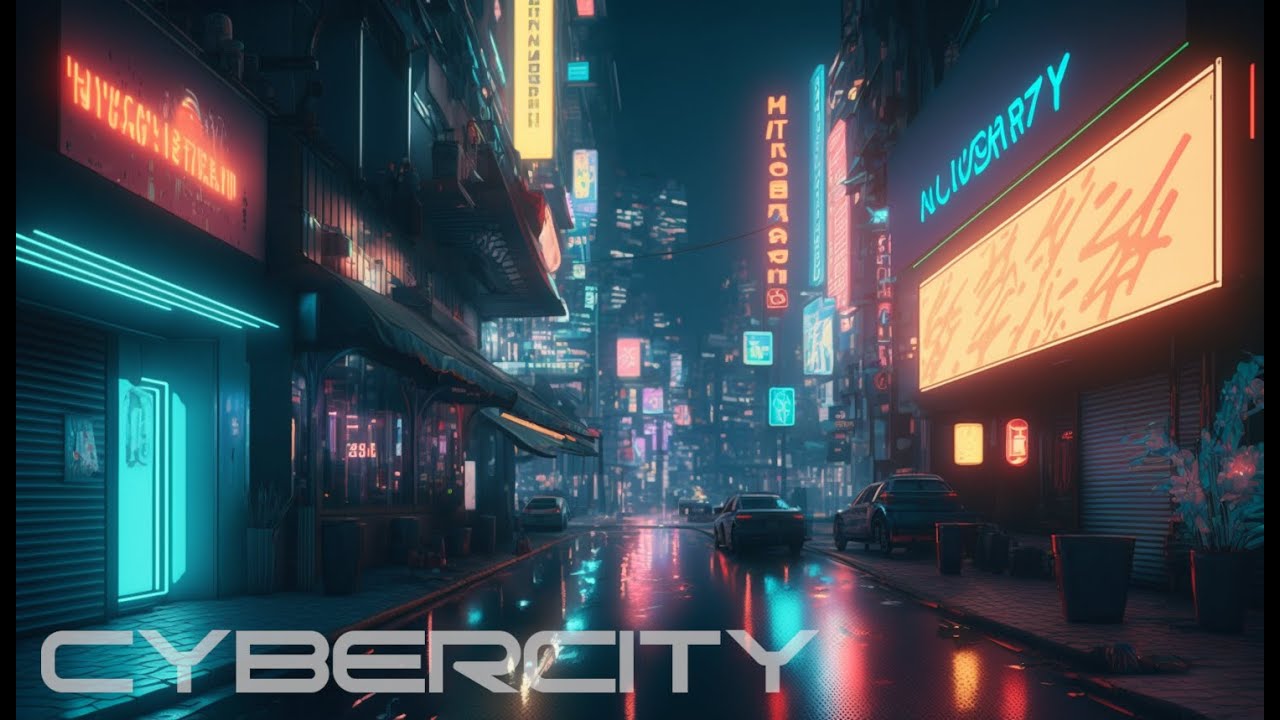The Spiritual Gnosis of Evolving Cyberpunk Literature
Cyberpunk literature, traditionally known for its gritty, dystopian depictions of a high-tech future, has also carved out a space for exploring spiritual and metaphysical themes. As the genre has evolved, it has increasingly delved into the concept of gnosis—a deep, transformative knowledge of the self and the universe—through the lens of advanced technology, artificial intelligence, and virtual realities. This spiritual gnosis in cyberpunk reflects both dystopian and utopian visions, portraying the dual potential of technology to either alienate or enlighten humanity.
In the classic cyberpunk tradition, spiritual gnosis is often depicted in a dystopian light, where the pursuit of knowledge and transcendence through technology leads to alienation, loss of identity, and a fractured reality. William Gibson's Neuromancer (1984), a seminal work in the genre, presents cyberspace as a virtual reality where consciousness can escape the physical body. However, this escape comes at a cost: the loss of self in a digital labyrinth controlled by powerful, faceless corporations. The protagonist's journey through cyberspace mirrors a quest for gnosis, but one that is fraught with dangers and the risk of spiritual disintegration.
Philip K. Dick's works, such as Do Androids Dream of Electric Sheep? (1968), further explore the theme of spiritual gnosis in a world dominated by artificial beings and synthetic realities. Dick's characters often grapple with questions of what it means to be truly human in a world where the line between organic and artificial is blurred. Their quest for knowledge and self-understanding is hindered by the oppressive forces of a technologically advanced, yet spiritually barren society. The dystopian vision here is one where the pursuit of gnosis is constantly thwarted by the dehumanizing effects of technology and the pervasive influence of corporate and governmental powers. In such a world, the characters' attempts to attain a deeper understanding of their own nature and reality are met with existential dilemmas, often leading to a sense of despair or nihilism. The artificial beings, such as the replicants in Do Androids Dream of Electric Sheep?, embody this struggle as they seek to assert their humanity in a world that denies them a soul or a spiritual essence. Dick’s narratives frequently highlight the dangers of a society where spiritual knowledge is either commodified or lost amidst the chaos of technological advancement, resulting in a dystopian reality where true enlightenment is elusive.
While dystopian cyberpunk literature often portrays technology as a barrier to spiritual fulfillment, there is also a strain of cyberpunk that envisions technology as a means of achieving a higher state of consciousness. This utopian vision of cyberpunk literature suggests that advanced AI and virtual realities could serve as catalysts for spiritual evolution, offering new pathways to gnosis.
In works like Neal Stephenson's Snow Crash (1992), the virtual world of the Metaverse becomes a space where characters can explore not only their identities but also the boundaries of human consciousness. The protagonist’s journey through this digital landscape parallels a quest for gnosis, as they confront both the dangers and the transformative potential of virtual reality. The Metaverse, with its limitless possibilities, represents a utopian vision where technology and spirituality intersect, offering a space for the mind to transcend physical limitations and achieve deeper insights into the nature of existence.
Similarly, in Bruce Sterling's Schismatrix (1985), the merging of biological and cybernetic technologies is presented as a potential path to post-human enlightenment. The novel explores the idea that through the integration of technology with the human body and mind, individuals could transcend their biological limitations and reach a state of spiritual gnosis. This utopian vision suggests that the evolution of technology could lead to the emergence of a new form of consciousness, one that is more connected to the universe and the underlying truths of existence.
The evolving landscape of cyberpunk literature often reflects the dual nature of technological advancement in relation to spiritual gnosis. On one hand, there is the dystopian vision, where technology alienates humanity from its spiritual roots, creating a world where gnosis is either unattainable or corrupted by the forces of control and manipulation. On the other hand, there is the utopian vision, where technology is a tool for spiritual awakening, providing new avenues for self-discovery and transcendence.

This duality is perhaps best illustrated in the depiction of virtual reality within the genre. Virtual reality, as portrayed in cyberpunk literature, can be both a prison and a gateway. It can trap individuals in artificial constructs, severing their connection to the real world and their own spirituality. Yet, it can also offer a new realm where the boundaries of consciousness can be expanded, leading to profound spiritual experiences and a deeper understanding of the self and the universe.
As cyberpunk literature continues to evolve, it remains a powerful medium for exploring the spiritual implications of technology. Whether through dystopian warnings or utopian possibilities, cyberpunk offers a unique perspective on the relationship between humanity, technology, and spiritual gnosis. The genre challenges us to consider how the rapid advancement of AI and virtual reality will impact our spiritual lives, posing important questions about the future of consciousness and the potential for technological transcendence.
In a world increasingly defined by digital realities and artificial intelligence, cyberpunk literature serves as a crucial exploration of how these technologies might shape not only our society but also our spiritual existence. The spiritual gnosis of cyberpunk is a testament to the genre's enduring relevance, offering a lens through which we can examine the profound and often paradoxical effects of technology on the human spirit.

